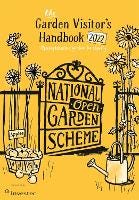Self care and safety/practicality
The airline safety announcement always says:
“Fit your own oxygen mask before helping others fit theirs.”
It makes complete sense: you won’t be effective in fitting a child’s oxygen mask if you’re becoming dizzy from lack of air.
I also remember my life-saving training from swimming classes in my teens. Our instructor was ex-Forces and he emphasised that we must tell friends NOT to jump into deep water to help someone in difficulties unless they were a strong swimmer – and had done life-saving training.
“The last thing you need when carrying out a rescue is having to deal with some wannabe hero who’s in danger of drowning themselves, and pulling you and the victim down with them!”
Every summer brings tragedy to a family where someone over-estimated their skill in the water …
Self-care for those who are care-givers
Those safety warnings have been in my mind this past week, as I’ve balanced looking after myself with going into hospital to support my husband every day.
I’d arranged to meet a friend and visit a garden opening under the Yellow Book scheme last weekend (https://findagarden.ngs.org.uk/garden-list). I really had to challenge my ‘shoulds’ about what was appropriate action from a loving wife. It meant I got into the hospital a couple of hours later than I might otherwise have done – and it was totally worthwhile. I felt stimulated and recharged, and brought my enthusiasm into the ward as I described the garden to my husband.
I know from my work as a psychotherapist, and supervisor of other therapists, that self-care is utterly essential if you want a long-term career in counselling. You can’t pour out care if your own jug is empty. As a lecturer in counselling, I emphasised the need for fun, for different activities. We can become far too insular, indoctrinated with our own therapeutic worldview. It’s vital to maintain relationships with other friends – a reminder that a whole world exists outside the therapy room.

The same applies to those with a caring role within the family. When my children were babies I cherished meetings with child-free friends: the chance to talk about things other than whether baby’s progress was ‘normal’ was an affirmation that ‘Susy’ still existed, outside the role of mother and home-maker.
I’m lucky – my ‘caring’ for my husband is short-term. Within a month, he’ll have recovered significantly. I have huge compassion for those involved in a caring role long-term. Carers UK collect data on the challenges carers face:
the 2021 GP Patient Survey, which found that carers are more likely to be in poor health than the general population, with 6 in 10 (60%) of carers having a long-term condition, disability or illness compared to 50% of those who weren’t caring. https://www.carersuk.org/policy-and-research/our-areas-of-policy-work/health/
Talking about it.
My psychology and psychotherapy training does help in the current situation. I’m used to sharing things that are bothering me with a range of trusted others. I know that talking about problems reduces the stress associated with them. Matt Huston expresses this clearly in a short article in Psyche: talking with others helps you see the bigger picture. https://psyche.co/notes-to-self/why-breaking-a-stressful-situation-into-parts-might-help?

Focusing on moments of joy
I always look forward to reading Jo Gatford’s column ‘The Art of Fixion’. This week’s edition, on noticing numbers that can be found in urban environments, was a delight.
A different area of focus, but prompted by the same need to manage feelings of overwhelm in demanding environments, that I discussed in my Muse last week.
Both Jo’s urban counting and my people-watching switch on curiosity – which is essential for feeding creativity.
Jo mentioned research discussed in a fascinating article by Helen Edgar of Autistic Realms: ‘Glimmers: Autistic joy and monotropism’.
Glimmers are small but powerful moments when everything aligns; our focus, sensory needs, and emotions come together in a way that feels right. For Autistic people, these fleeting moments of joy, peace, or connection offer grounding and relief in a society that often feels overwhelming. Glimmers help us feel safe, reconnect with joy, and provide nourishment, allowing us to feel more in tune with ourselves and the world around us.
https://autisticrealms.com/glimmers-autistic-joy-and-monotropism/?
I would describe this as ‘mindfulness’, or ‘being present’. Whatever we choose to call them, these moments are precious. Glimmers are equally valuable for people who don’t identify as neurodivergent. ‘Identifying moments of pleasure, content or achievement’ is a very powerful strategy in coping with depression.
They’re also an essential component of self-care. On sunny days, I’m delighted by light reflected from leaves and the shadows leaves cast on the ground. When it’s overcast and cloudy, I can direct my attention to birds around the bird-feeder, or the subtle difference in hue between a deep purple plum and the burgundy foliage of physocarpus ‘Diablo’ behind it. It matters that we pay attention to these moments, bring our full awareness to them - that is what allows them to work their magic.





